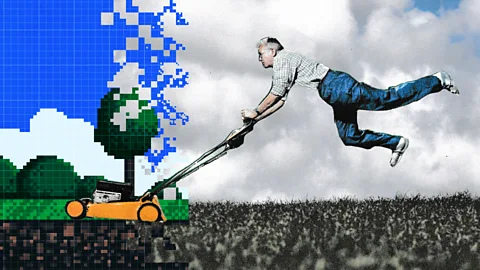Health bars and power ups: The 'freaky and unpleasant' world when video games leak into the physical realm
 Serenity Strull/ BBC/ Getty Images
Serenity Strull/ BBC/ Getty ImagesVideo games are the biggest form of entertainment in the world, but sometimes they bleed into people's lives offline in surprising and disturbing ways.
Christian Dines' hands were twitching. As though he were still gripping his video game controller, about to make a killer move. But the game was switched off and his hands were free. The US-based sustainability advisor had also noticed how, when he glanced at objects in his room, he felt an urge to absorb or "collect" them, like weapons or power-ups in his game.
He swallowed hard. "I thought, 'what the hell is this">window._taboola = window._taboola || []; _taboola.push({ mode: 'alternating-thumbnails-a', container: 'taboola-below-article', placement: 'Below Article', target_type: 'mix' });
